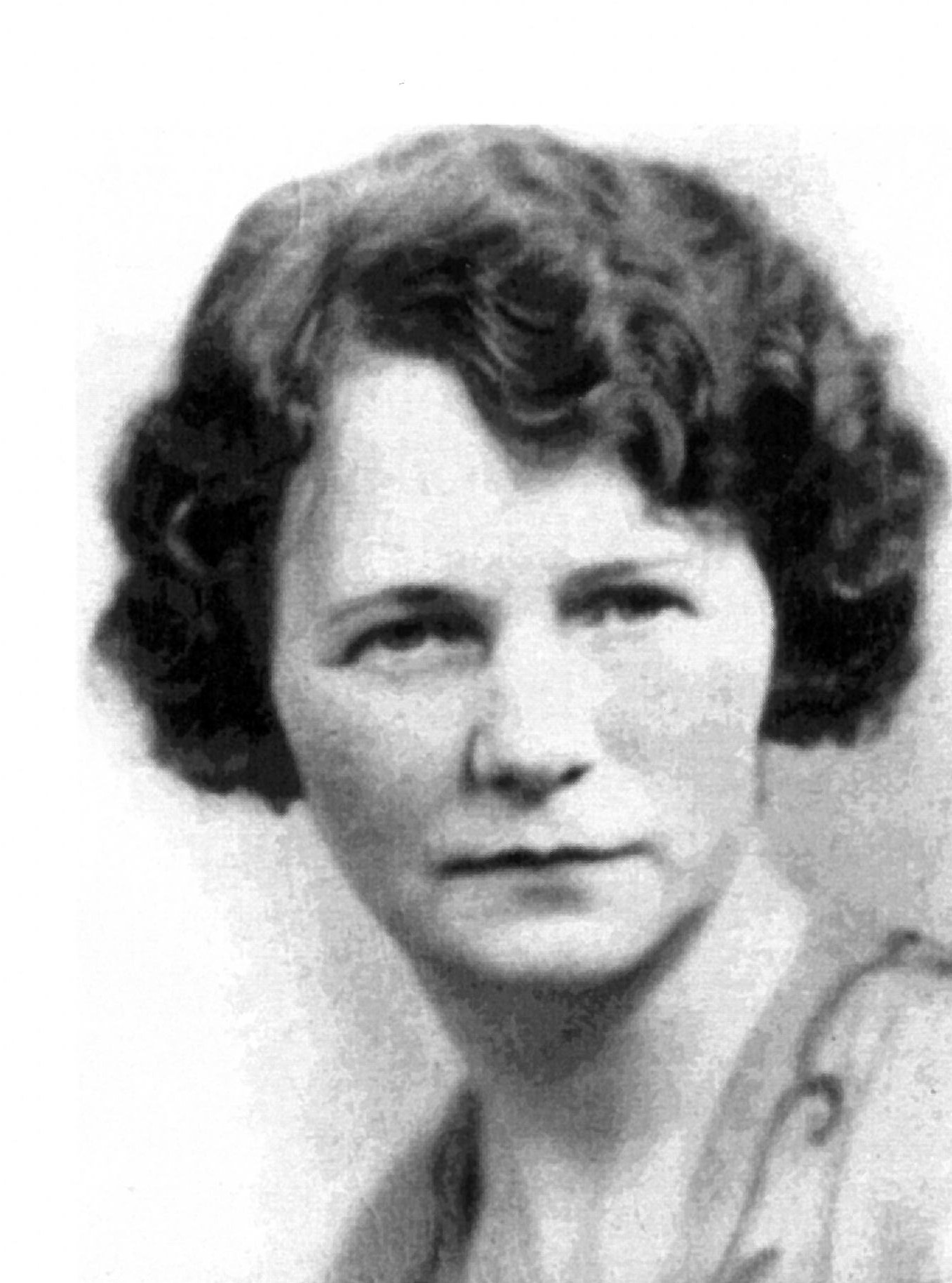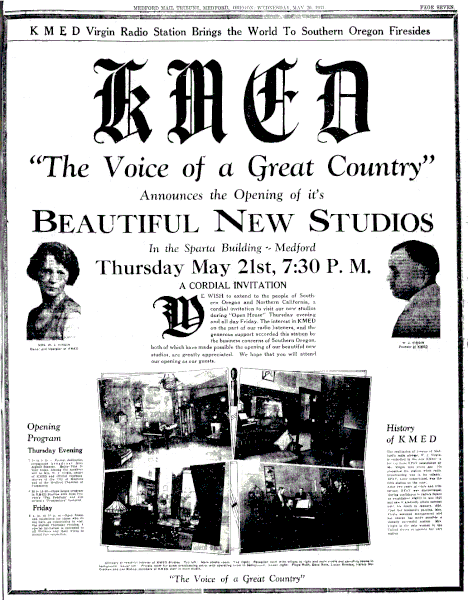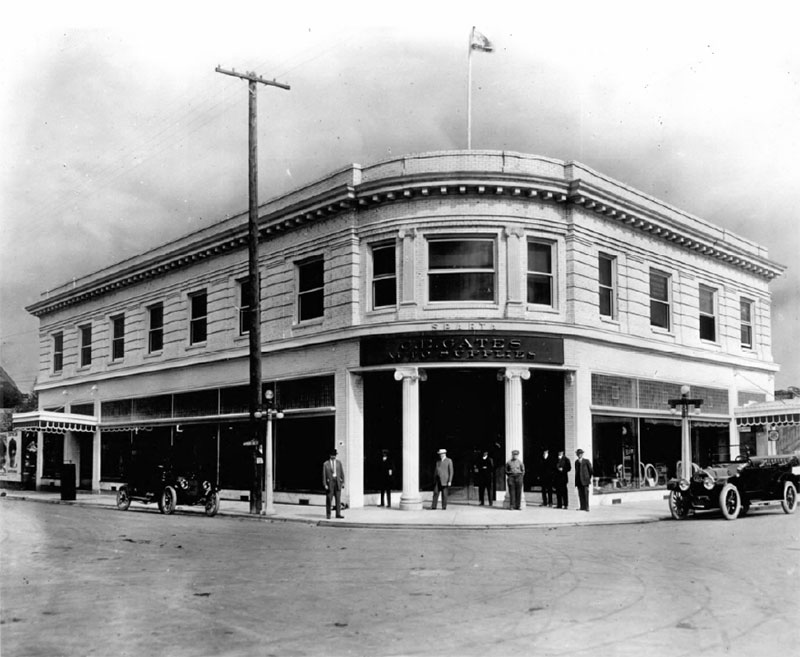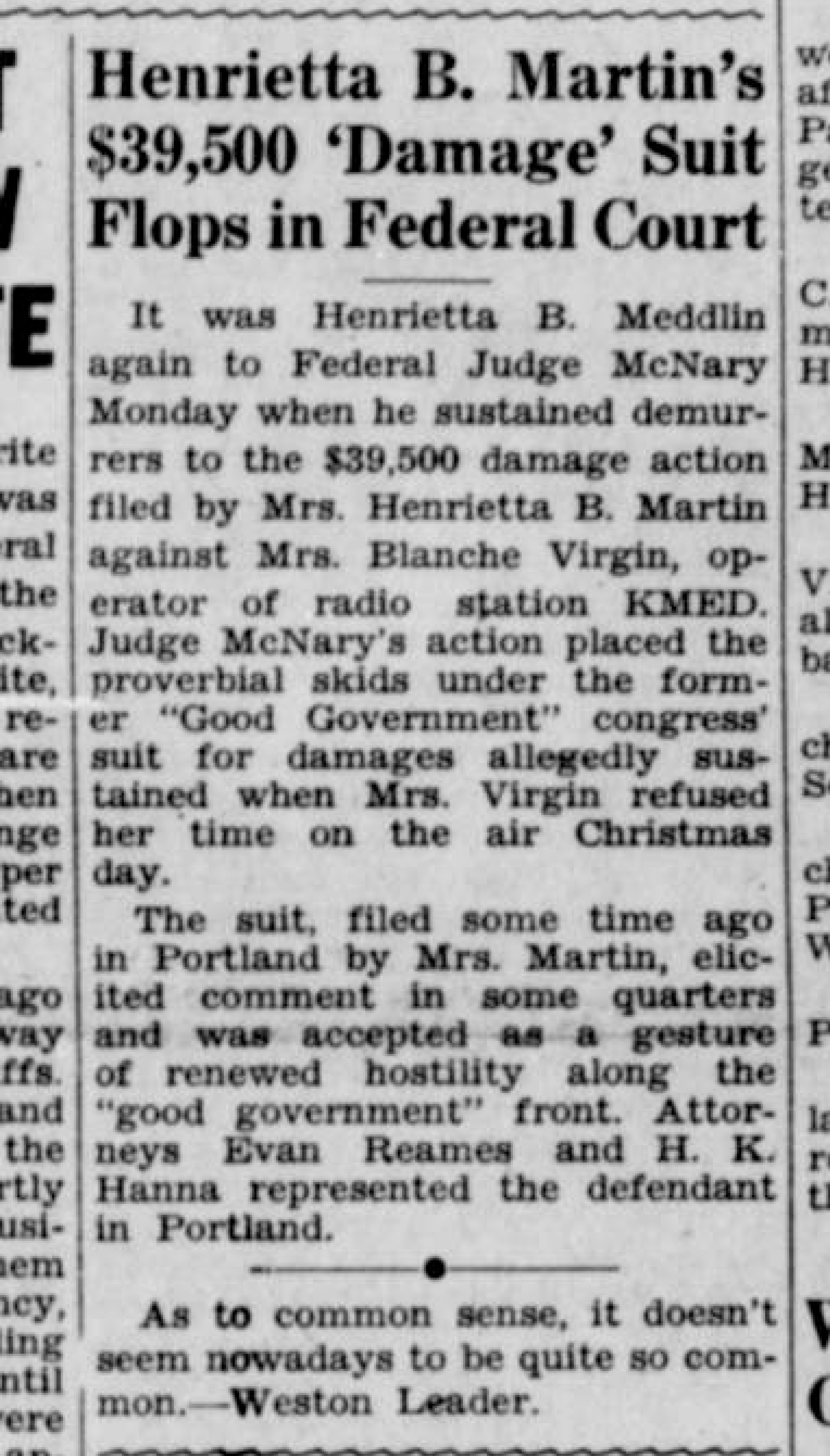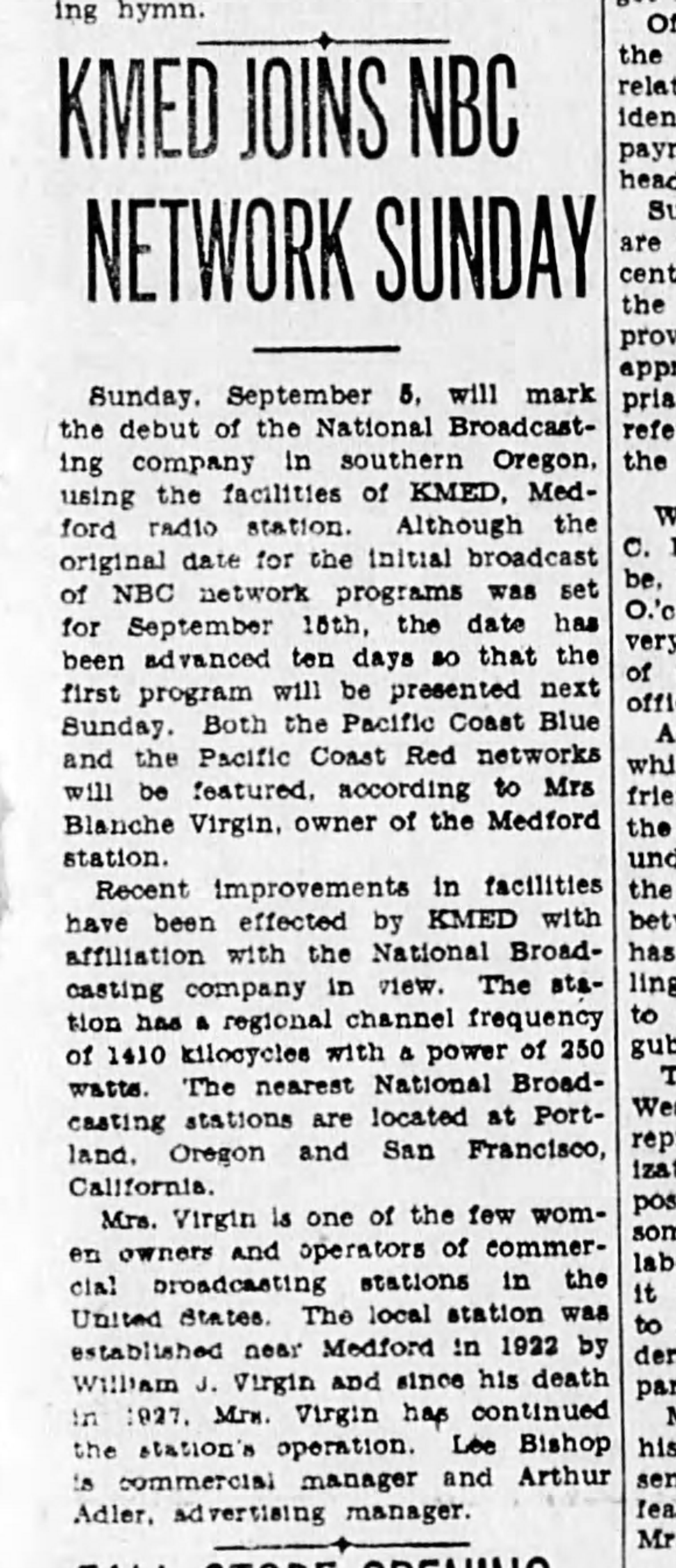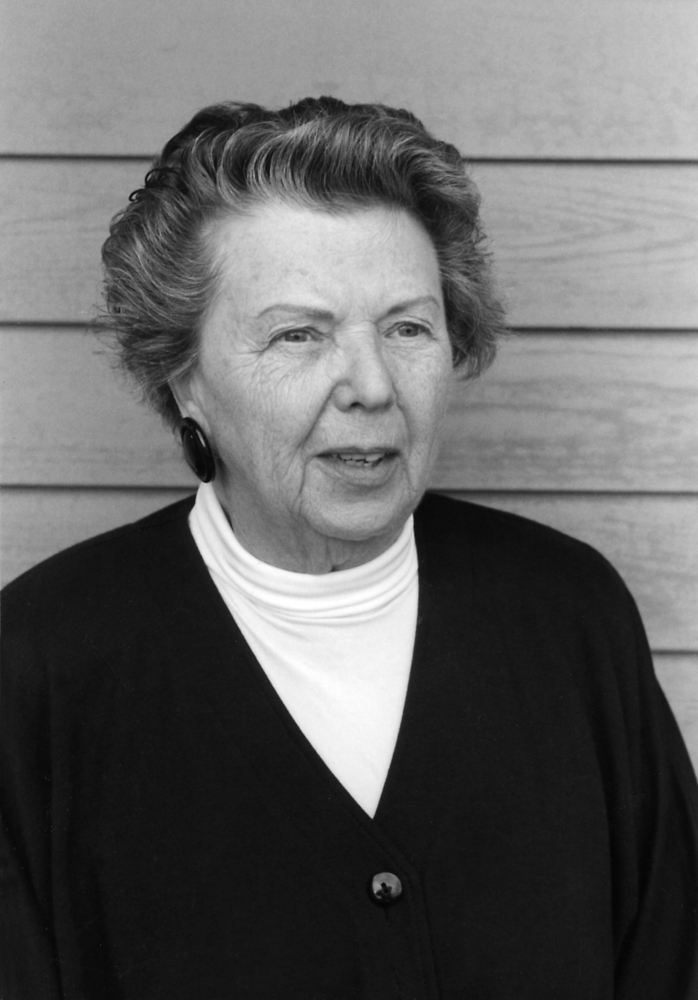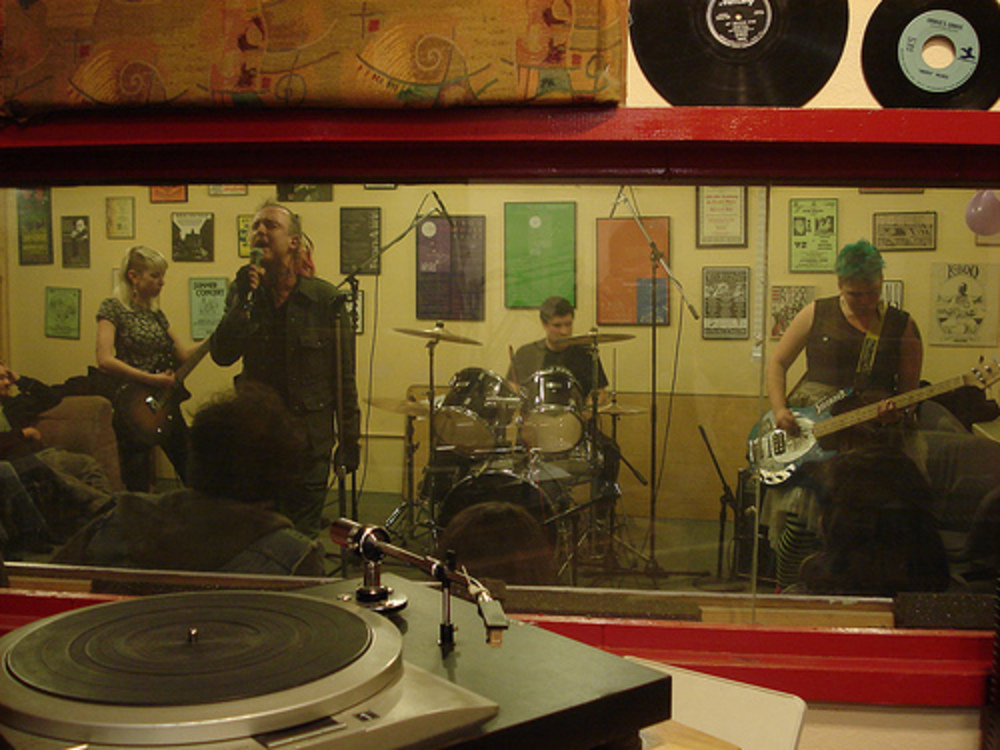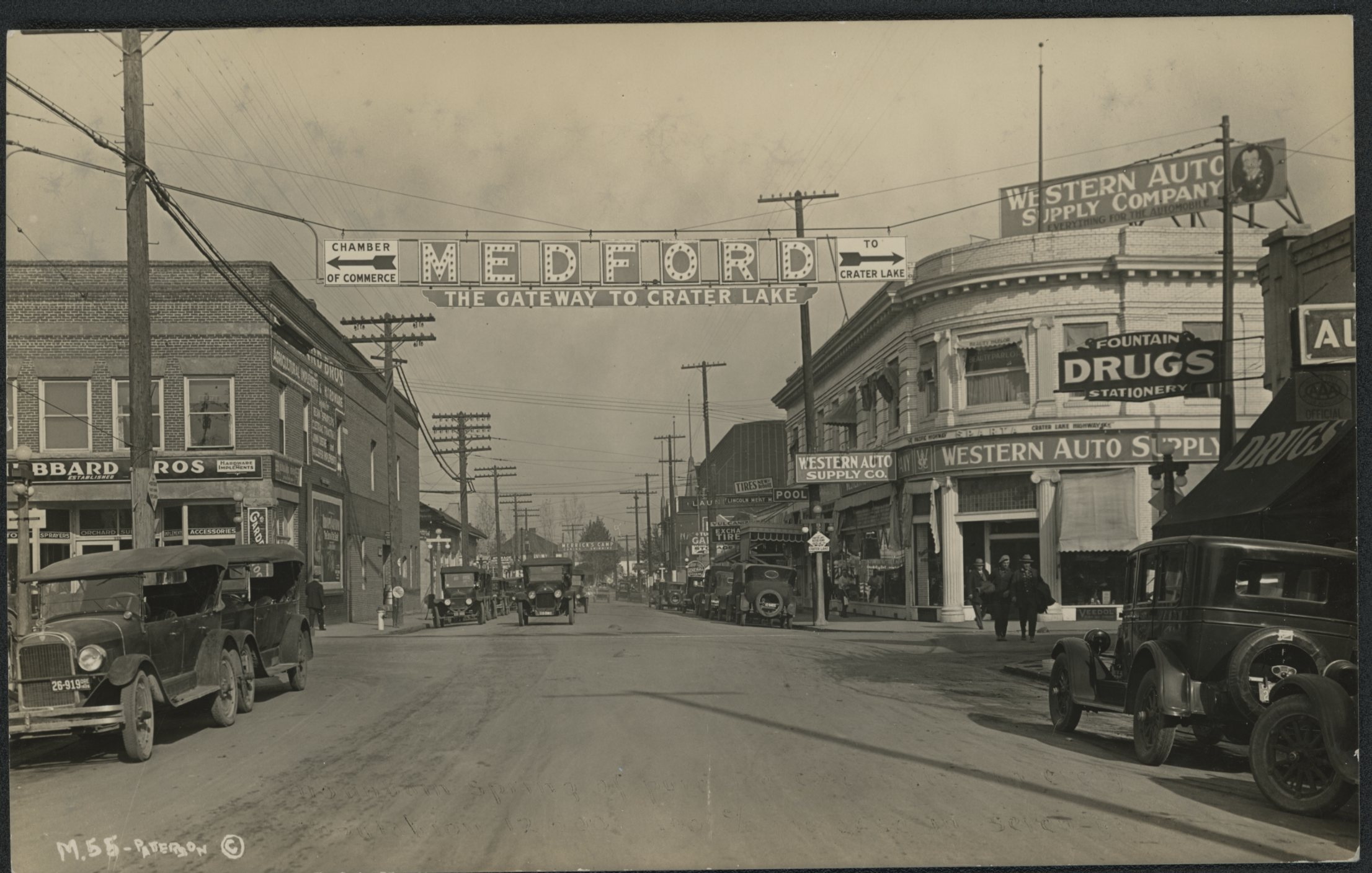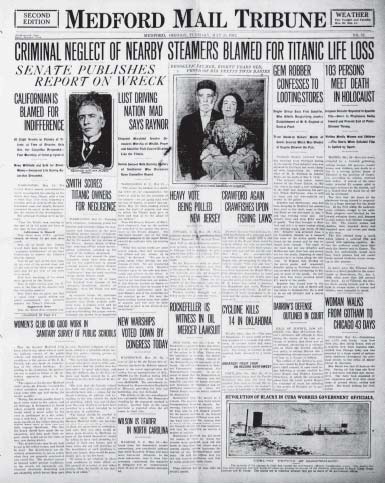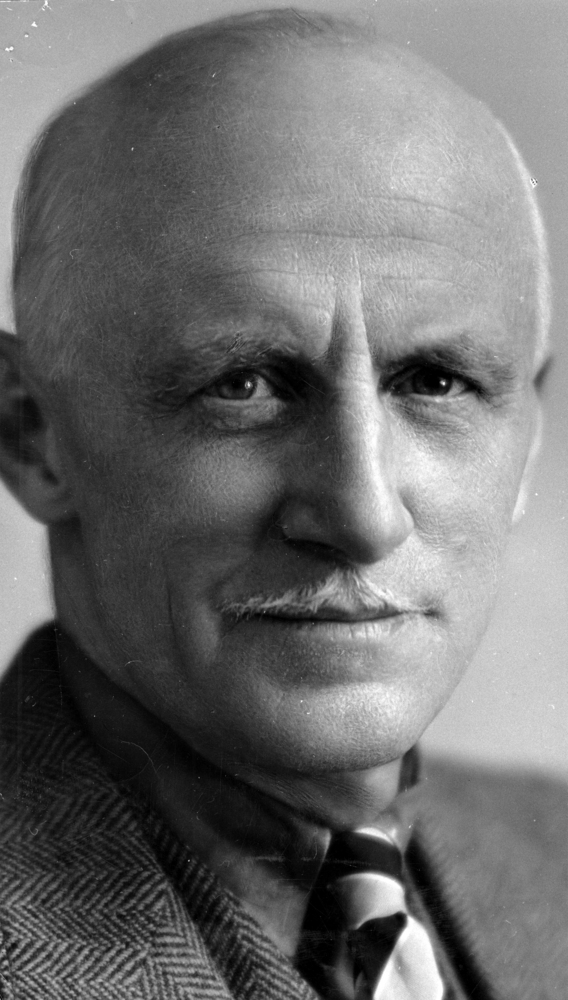In 1928, Blanch McBride Virgin became the first woman in the United States to own and operate a professional radio station—KMED in Medford, Oregon. Born more than thirty years before the first commercial radio broadcast in the country (in Pittsburgh in 1920), Virgin could not have imagined as a child the technology of radio or the effect it would have on her life. As owner of KMED from 1928 to 1950, she oversaw KMED’s success as the Southern Oregon region’s largest radio station and won a federal lawsuit brought against her by the Good Government Congress.
Mary Blanche McBride (known as Blanch) was born in Ashland on September 5, 1887, to John and Rosella Palmer McBride. Following her high school graduation, she took a job as a compositor at the Ashland Daily Tidings. In February 1907, she married William “Bill” J. Virgin (1886–1928), who had grown up in her neighborhood. Bill, who attended the University of Oregon before enlisting in the U.S. Navy, worked as an electrical foreman for the Mountain Copper Company in Keswick, California, where the couple was married. They divorced on March 25, 1909, and remarried in San Diego on July 10, 1910. They lived in Stockton for a time before moving to Portland, where Blanch was an assistant in a doctor’s office and Bill worked as an electrician. They moved back to Ashland in 1921, and Bill took over management of his family’s flour mill in Central Point. In 1927, the couple adopted a son, William J. Virgin, Jr.
In December 1921, in a barn in Ashland, Bill and three friends assembled a simple, five-watt radio transmitter made of crude parts—a tube, a coil, and a series of resistors and capacitors mounted on a board and powered by a 6-volt car battery (to provide filament voltage) and a bank of batteries (to provide plate voltage). Connecting a long wire to a nearby tree as an aerial, they transmitted the first radio signal in southern Oregon. Seven months later, Virgin applied to the federal government for a radio station license. KFAY went on the air on September 23, 1922, broadcasting from the Jackson County Fairgrounds in Medford. At the time, all stations broadcast on the same frequency—about 833 on the AM radio dial—and many were on the air several days a week for an hour or two at a time, with music played on phonograph records interspersed with local talent.
KFAY enjoyed expansive coverage by the Medford Mail Tribune, but Bill Virgin decided to close the station in the summer of 1924. Within two years, however, radio stations had become more professional, with regular broadcasts on individually assigned frequencies. Bill requested new call letters from the federal government (KFAY's license had been deleted in 1924), and Robert Ruhl, publisher of the Mail Tribune, bought a half-interest in the station for $1,500. KMED signed on the air in December 1926 from the Sparta Building in downtown Medford.
KMED’s first year was financially challenging, and Ruhl soon quitclaim deeded his interest in the station to Bill. Within a year of its first broadcast, KMED was struggling with a $4,000 debt. On January 27, 1928, Bill died—he had long suffered from Bright’s disease—and Blanch assumed ownership of the station. Before dying, Bill had asked Bill Gates, a friend who owned the Groceteria in Medford and whose nephew founded Gates Radio Company in Illinois, to help Blanch learn the radio business. By the late 1920s, Gates was identified as KMED’s program manager.
By the early 1930s, KMED under Blanch Virgin’s ownership had become southern Oregon's largest radio station, with coverage well beyond Jackson County. The station’s local programs and its coverage of West Coast sports were popular and expanded over time. Virgin intermittently served as KMED’s program director and interviewed guests on “women’s programs,” a programming category that consisted of cooking and gardening discussions and interviews with women engaged in interesting pursuits. Virgin maintained a publicity partnership with the Mail Tribune and increased advertising and programming contracts with regional businesses. “Under the new plan of management,” the Mail Tribune reported on February 7, 1928, “…only the finest arrangement of talent will be permitted to broadcast.”
In 1933, Virgin purchased land on Ross Lane in Medford to build a larger and more stable transmission plant, which increased the signal’s reach and clarity. KMED studios remained in the Sparta Building until the early 1940s before moving to the newly expanded Ross Lane building. In 1935, Virgin refused to sell KMED airtime to the Good Government Congress, a local organization associated with the Jackson County Rebellion. A representative of the GGC sued, and Virgin won the case when a federal judge ruled that broadcasting stations could choose their own clients.
In 1947, Virgin married Lyonel “Eddie” Randle, a KMED technician. She sold the station in 1950 to Radio Medford, Inc., formed by local investors, and the couple lived in Portland until about 1961. They moved to the Los Angeles area and then Tracy, California, before settling in Marysville, Washington.
Blanch McBride Virgin Randle died in Marysville on October 25, 1978. During the 1970s and early 1980s, Radio Medford progressively sold its broadcast properties. KMED was formally disbanded in December 2022.
-
![]()
Blanche McBride Virgin Randle.
Courtesy Southern Oregon Historical Society
-
![]()
KMED ad in the Medford Mail, May 20, 1931.
Medford Mail Tribune -
![]()
Sparta Building, Medford, 1915.
National Park Service, National Register 92001329 -
![]()
KMED program schedule, Medford Mail Tribune, February 29, 1928.
Medford Mail Tribune
-
![]()
"Henrietta B. Martin's $39,500 'Damage' Suit Flops in Federal Court," Southern Oregon Miner, March 1, 1935.
Southern Oregon Miner
-
![]()
"KMED joins NBC Network Sunday," Medford Mail Tribune, September 2, 1937.
Medford Mail Tribune
Related Entries
-
![As It Was (Jefferson Public Radio)]()
As It Was (Jefferson Public Radio)
Jefferson Public Radio (JPR), a network of satellite radio stations ser…
-
![Good Government Congress (Jackson County Rebellion)]()
Good Government Congress (Jackson County Rebellion)
During the severe economic stress of the early 1930s, a homegrown, radi…
-
![Jefferson Public Radio]()
Jefferson Public Radio
Owned by and operating from the campus of Southern Oregon University in…
-
![KBOO Community Radio]()
KBOO Community Radio
In 2008, KBOO Community Radio (90.7 FM) celebrated forty years on the a…
-
![Medford]()
Medford
Medford, the county seat of Jackson County, was platted in 1883 in the …
-
![Medford Mail Tribune]()
Medford Mail Tribune
For over a hundred years, the Medford Mail Tribune argued against what …
-
![Robert Ruhl (1880-1967)]()
Robert Ruhl (1880-1967)
Robert Ruhl, publisher and editor of the Medford Mail Tribune, was Oreg…
Related Historical Records
Map This on the Oregon History WayFinder
The Oregon History Wayfinder is an interactive map that identifies significant places, people, and events in Oregon history.
Further Reading
"Defendant Victor in Radio Suit." Portland Oregon Journal, April 8, 1935, p.13

